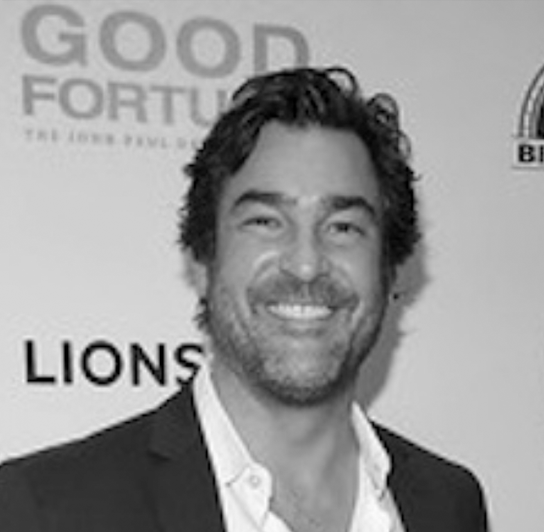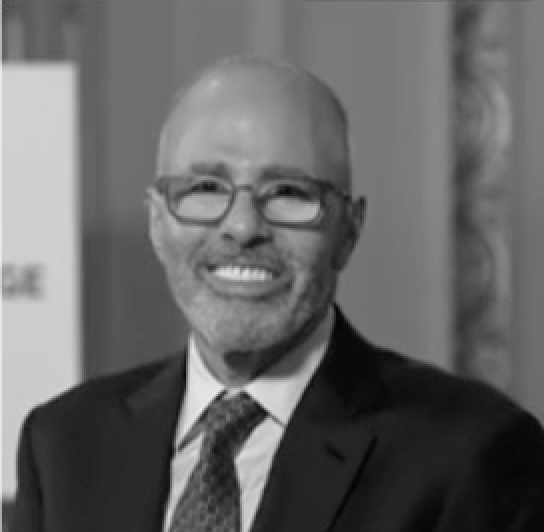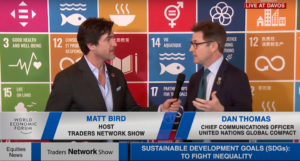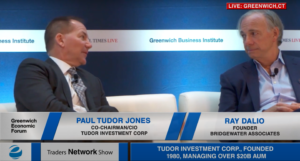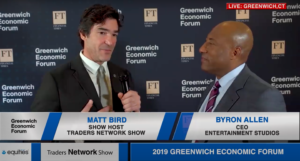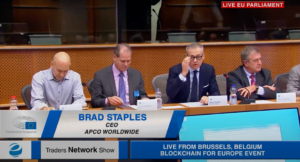Ray Dalio Presents his Principles for a Successful Corporate Culture at the Greenwich Economic Forum
Contributed by: Show Editorial Team
Bridgewater founder discusses meritocracy and data-driven decision-making
Ray Dalio, Founder of Bridgewater Associates delivers special presentation on corporate culture at Greenwich Economic Forum (Greenwich, CT)
It’s all about how you make decisions. That process is the most important consideration in business, said Bridgewater Associates Founder, Ray Dalio, during a presentation at the 2019 Greenwich Economic Forum. Dalio knows a thing or two about success: his firm manages $160 billion, and he himself is worth $18.6 billion.
Dalio’s focus on decision-making dates to his days of writing notes on a yellow legal pad. For each individual investment he made, he got in the habit of jotting down the factors that led to his choice. Over time, these notes provided perspective that could eventually congeal into guiding principles.
From there, he created formulas—algorithms—that could then be applied to every future decision. And today technology enables Dalio to access these formulas at any given moment. It all boils down to a process that helps take the guesswork out of decision-making. Dalio outlined much of this in his 2017 book “Principles: Life and Work.”
As a CEO, Dalio has relied on this kind of meticulous process not just to make business decisions, but also to create a corporate culture that breeds success. That culture is an idea meritocracy—encourage idea generation and let the best ideas win.
“Rather than just me making ideas, I learned, through the difficulty of it, that if I could have people stress test my ideas so that we could argue and have thoughtful discussion, we could raise the probability of coming up with the best ideas,” Dalio explained. “By using algorithms and rules, we can think through the criteria for making decisions rather than just making decisions. Then you can accumulate [those experiences] and compound your knowledge.”
If this all sounds a little theoretical, here’s how Bridgewater Associates actually puts this into practice: the company uses apps. The data collected from these apps then informs decisions. For example, Bridgewater uses one app called Dot Collector that records people’s opinions and behaviors in real time. Say Dalio is giving a company-wide presentation via the app, everyone—from the C-suite executive to the 24-year-old fresh out of college—can log their opinion. Numeric rankings then populate a company-wide grid that displays—in real time—how everyone is responding to the presentation.
“It encourages people to freely express what they really think, independent of hierarchy. That creates ownership,” Dalio said. The app facilitates real-time feedback on strengths and weaknesses, helps people see things through other peoples’ eyes, offers in-the-moment coaching on how to handle a situation, and draws out disagreement so that meaningful discussion can arise. This gives employees assurance that they are a valuable part of the team, Dalio explained.
Bridgewater also uses apps that provide daily evaluations and help employees manage project deadlines, log difficulties and come up with solutions, and even resolve interpersonal disputes. All of it harkens back to Dalio’s early practice of writing things down and using that information to move forward—but it’s certainly come a long way since pen and paper.
This kind of data-driven decision-making also guides Bridgewater’s hiring practices.
“Before hiring, you want to think of a role spec. What is the type of person that we want to fit into a job? Everybody has strengths and weaknesses. Everybody thinks differently. So what is the type of person that will be best for that job?” Dalio said.
Bridgewater takes a very analytical approach to hiring, and—unsurprisingly—an app is critical to the process.
“Think of a person like being a Lego set full of attributes,” Dalio said. Does the job require a lot of red bricks or blue bricks or a mix of both? Bridgewater uses an app that breaks people down into their component parts—creative or organized, for example—and then matches that individual’s component parts to the characteristics desired for a particular role.
“So I can say I would like a Russell, I would like a Sally and a Harry. I can reverse engineer that and say, what are their attributes, because I want to get another one of those,” Dalio said.
The company even analyzes resumes in this sort of objective, Lego brick-y, kind of way.
“It helps us identify those that have the specifications that we are looking for before we do interviews and discussions,” Dalio said.
Hiring the right people is the start of creating the right culture. But at the end of the day, Dalio said there are four questions all company leaders should ask themselves:
1) Do you want to have idea meritocratic decision-making, and to what degree?
2) Do you want to know what people are really like and what you’re really like? (“It’s like being naked in front of the mirror. It’s not necessarily a pretty picture, but if you get past it, it’s good,” Dalio said.)
3) How truthful and transparent do you want to be with each other?
4) Do you want to have algorithmic decision-making as part of your decision-making?
PR and Media By: CommPro Worldwide
Link to original article: Here
(Written by Andrew Waite; Editing and revisions by Nicole Liddy)
All rights reserved to the Traders Network Show. No part of this publication may be reproduced, distributed, or transmitted in any form or by any mean including; photocopying, recording, or other electronic or mechanical methods, without prior written permission of the publisher, except in the case of brief quotations embodied in critical reviews and certain other noncommercial uses permitted by copyright law. For permission requests, write to the publisher addressed “Attention: Permissions Coordinator”

